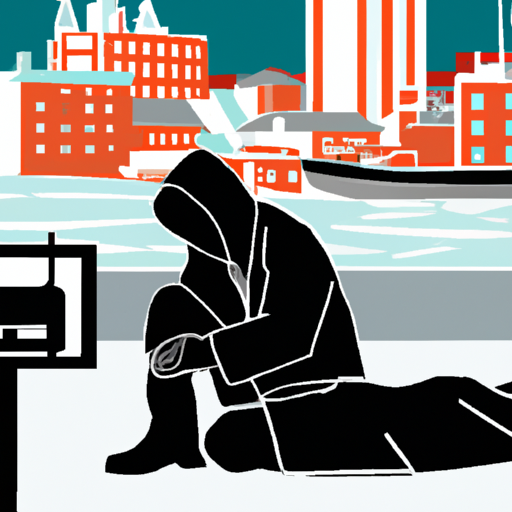The Ongoing Opioid Crisis in Canada: A Deep Dive into Nova Scotia’s Battle
In the past few years, the opioid crisis has kept escalating, hitting communities across Canada hard – Nova Scotia being no exception. According to this detailed report by Times Colonist, the province faces an ever-increasing burden of opioid-related hospitalizations, overdose occurrences, and deaths. As the crisis continues to afflict Canadian society, the demand for comprehensive solutions becomes more crucial than ever.
Effects of Opioid Crisis in Nova Scotia
A combination of factors, including widespread homelessness, a rising rate of crime, and escalating impacts of opioid offenses, continues to exacerbate the opioid crisis in Nova Scotia. The fallout takes a toll on not only the affected individuals and their families but also exerts tremendous pressure on the region’s healthcare system and the community at large.
Homelessness
The homeless population in Nova Scotia is particularly vulnerable. The concurrent epidemics of homelessness and opioid misuse often feed into each other, leading to a more complex and challenging situation.
Crime
The province has also witnessed an increase in crime relating to opioids, with many offenses directly or indirectly linked to the drug trade. This is causing a strain on law enforcement agencies who are grappling with both the root causes and the subsequent effects of the crisis.
Healthcare System
The opioid crisis also significantly impacts Nova Scotia’s healthcare system. The rise in opioid-related incidents translates into a surge in hospital admissions, longer waiting times, and increases healthcare costs.
Combatting the Crisis
The Times Colonist article also highlights the measures put in place and the ongoing efforts intended to tackle the crisis.
Naloxone Distribution
The distribution of naloxone – a medicine known to reverse opioid overdoses in emergencies – has been part of Nova Scotia’s response to the crisis. Access to this overdose-reversal drug is critically important, especially for those most at risk.
Opioid Class Action
The province has joined an opioid class action lawsuit aiming to recover costs related to the opioid crisis across all of Canada. This effort hopes to bring financial reprieve and accountability to the pharmaceutical firms who are believed to have played a role in fueling the crisis.
Key Points
- Homelessness and the opioid crisis in Nova Scotia feed into each other, resulting in a multi-faceted challenge.
- Opioid-related crimes are increasing and adding extra strain on law enforcement resources.
- The pressure on the healthcare system continues to escalate due to the growing number of opioid-related incidents.
- Access to and distribution of naloxone has become a critical part of the response.
- Nova Scotia is part of an opioid class action lawsuit aiming to recover costs and bring accountability to the pharmaceutical industry.
Conclusion
In conclusion, Canada’s opioid crisis, particularly in Nova Scotia, is a multi-faceted problem with far-reaching effects. It’s clear that a comprehensive, multi-pronged approach is required to tackle this crisis. Solutions must not only address opioid misuse directly through measures like naloxone distribution but also the underlying issues, such as homelessness and crime, which are intrinsically linked to the crisis. Through collaborative initiatives and sustained efforts, it’s hopeful that Nova Scotia, together with the whole of Canada, can navigate its way towards a resolution of this complex issue.
